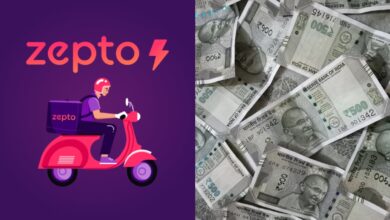Moonday Morning: Israel is cracking down on cryptocurrency tax evaders
It’s been another weekend of hodling and waiting for the markets to do something. Of course, we can’t make that happen, but what we can do, is bring you a round up of the weekend’s top cryptocurrency and blockchain stories from around the web.
Here’s Moonday Morning for you:
1. The Israeli tax authorities have taken a leaf out of Japan’s playbook and are stepping up the search for cryptocurrency tax evaders. Over the last two weeks the Israeli tax office has opened cases for hundreds of citizens that are thought to have unreported earnings made from cryptocurrency trading. In Israel, cryptocurrencies are classed as a financial asset and are subject to a capital gains tax of around 30 percent. Governments might not be able to control cryptocurrency, but they can still tax it.
2. Despite having no supported wallet and not being widely tradeable, the Petro is going to be accepted when buying oil in Venezuela. President Maduro announced the news on state-owned television late last week saying the move is aimed at reducing the dollar’s dominance in the oil market. That said, unlike the Petro, US dollar actually functions as a currency, so the Petro has some way to go.
3. The Abu Dhabi National Oil Company (ADNOC) has successfully completed a trial of a blockchain-based supply chain system in collaboration with IBM. This might sound fairly innocuous, but ADNOC is one of the world’s biggest oil producers with an output of three million barrels a day. According to the announcement, the platform delivers a single platform to track the quantities and values of each barrel of oil. It’s all in the name of making it easier, faster, and safer to buy oil, of course this sounds excellent, but in doing so it can stand to help make ADNOC even more profitable.
4. An Australian blockchain-based platform to allow customers to buy and sell energy has gone live in Freemantle. The platform, known as Power Ledger, will allow some customers to trade their surplus renewable energy. Customers will decide how much they are willing to buy and sell the energy for, purchases are made via the blockchain-based system thus decentralizing the whole process. How this will play out though is anyone’s guess as it’s the first time Australia has publicly trialed such a platform.
5. The Securities and Exchange Commission has handed out yet another cease and desist order to fund manager CoinAlpha for selling unregistered securities. CoinAlpha set up a fund in October 2017 with the sole intent of using it to trade digital assets. After the company failed to obtain a legal exemption, it did not correctly register with the SEC to sell securities, and so, was operating illegally.
6. Despite early signs that Malaysia might be getting ready to integrate cryptocurrencies into its national banking system the country’s central bank – Bank Negara – has declared that digital assets are not legal tender. Recently the Malaysian government said cryptocurrencies issued in the country must go through the Bank Negara. With that in mind, it seems the outlook for cryptocurrencies in Malaysia isn’t that great.
There you have it, another Moonday and it’s been another weekend of regulation, cease and desists, trials, and hurdles for cryptocurrency and blockchain. Some things never change.
Source: The Next Web
To Read Our Daily News Updates, Please visit Inventiva or Subscribe Our Newsletter & Push.




